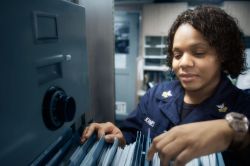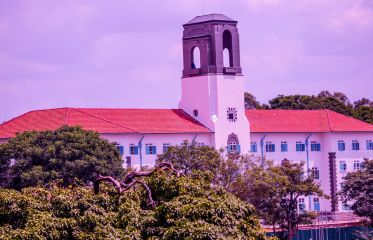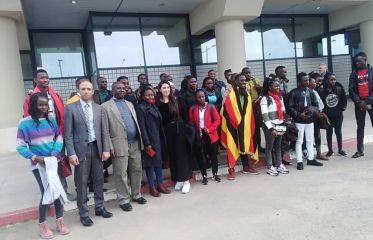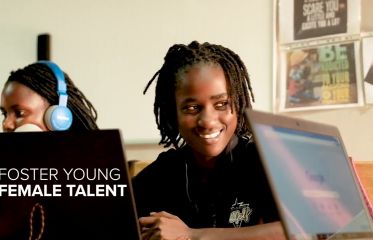Breaking News
- Flexible Remote Work Opportunity for University Students: Earn $100–$250 Per Month ...Read More
- Ministry of Education and Sports Azerbaijan Government Scholarships For 2025-2026 Academic Year ...Read More
- Government Sponsorship Undergraduate Admission Lists 2025-26 for Makerere University ...Read More
- Ministry of Education And Sports: Egyptian Government Scholarships 2025-2026 Academic Year ...Read More
- Ground Breaker Full Scholarship for girls to study Software Engineering 2025 July Intake ...Read More
- Tony Elumelu Foundation Entrepreneurship Programme (TEEP) 2025 for young African Entrepreneurs ...Read More
- DESIGNING FUTURES 2050 International Design Competition 2025 (€15,000 prize) ...Read More
- Ground Breaker Full time Scholarship for girls to study Software Engineering 2025 Intake ...Read More
- Ministry of Education And Sports Algerian Vocational Training Scholarships for 2024-2025 AY ...Read More
- Ministry of Education and Sports Advert for the Algerian Government Scholarships for 2024-2025 ...Read More
Meet Winnie Nalubowa; Uganda’s female rocket scientist
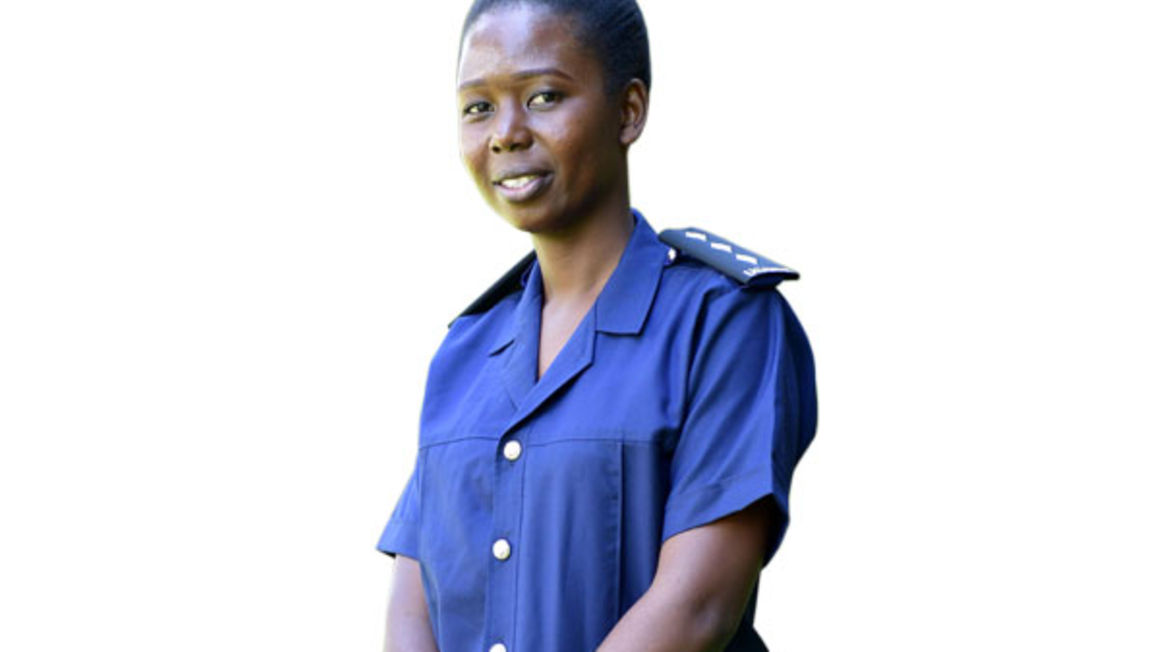
Winnie Priscilla Nalubowa. Photo | Kelvin Atuhaire
Story by Esther Oluka
I am willing to put myself through anything. Temporary pain or discomfort means nothing to me as long as I can see the experience will take me to a new level. I am interested in the unknown, and the only path to the unknown is through breaking barriers.”
Perhaps the words of Diana Nyad, an American author, journalist, motivational speaker, and long-distance swimmer are the best description of Winnie Priscilla Nalubowa, a rocket scientist.
Nalubowa missed her university admission on the first try and when she finally got in, the course was no small feat. For her, university studies were all about calculations and practical sessions of aerodynamics, aviation material science and mathematics, sometimes delivered in the Russian language. The assignments were complex and there was no room to dodge lectures.
Nalubowa, who is now deployed as an engineer in the aviation unit of the Uganda Police has earned her place through her pursuit for excellence, which started at an early age.
Inspiration
Growing up, Nalubowa’s career conversations with her father often featured Winnie Byanyima’s name, the first female Ugandan to become an aeronautical engineer working for the then Uganda Airlines from 1977 until 2001.
Following her father’s guidance, after completing Senior Six in 2005 at Taibah College School, Nalubowa applied to the National Aerospace University in Ukraine in Eastern Europe.
“I was inspired by Byanyima’s unique career aspirations and I was motivated to learn more about aircraft, especially how they are designed,” says Nalubowa.
Through a foreign university admissions office in Kampala, Nalubowa was admitted to the National Aerospace University for a bachelor’s degree in Aircraft and Rocket Engineering on private sponsorship.
Denied entry
In December 2006, Nalubowa travelled to Ukraine to embark on her academic journey. Upon landing at the Boryspil International Kiev Airport, she was denied entry into the country.
When authorities scrutinised her documents, she was informed that her course was supposed to commence in September 2006.
“I was told it was too late for me to register for the course. I was broken. My academic dream was temporarily shattered. I was advised to return to Uganda and plan to enroll the following academic year,” she says.
Her close family members, especially her father and mother were also saddened by the twist of events. But the whining and grumbling would not change anything. She had to wait painfully for another intake.
A second chance
In September 2007, Nalubowa travelled to Ukraine for the second time. Upon reaching the university, the weather was the first thing that shocked her. It was extremely cold for her liking.
Sights of aircraft parked in the university premises made her realise her dream course was worth the wait. At the university, four male Ugandans made her settle in and cope with the cultural shock.
“They became my second family. They emphasised the need to read extensively, the importance of moving with my passport all the time and warned me against dodging lectures,” she says.
While most lessons were conducted in English, some lecturers taught in Russian languages. But there was a translator to do the interpretation.
Aerodynamics, Mechanics of materials and structures, Aviation material science and mathematics are some of the course units she studied while at university.
“There were many calculations and practical sessions. Lecturers often came up with problem scenarios and asked students to solve them,” she says.
Whenever there were long breaks, for instance, summer holidays from June to August, Nalubowa used that time to visit her family, to relax and recharge.
Completing the course
Towards the end of her academic programme, Nalubowa and her colleagues were told to come up with design projects which in the end, they had to defend in the presence of the entire academic staff , including professors.
Her design project was about a transonic fighter jet. During her three-year aerospace course, she had amassed a wealth of knowledge on designing aircraft, helicopters, rockets, space crafts and missiles.
She successfully defended her design project in June 2011 and was awarded a First Class Bachelors degree in Aircraft and Rocket Engineering.
Life back in Uganda
But even with this accomplishment, Nalubowa’s ambitions were still high. The first year after completing university, Nalubowa applied for a masters in aerospace engineering at Carleton University in Canada.
However, her admission was cancelled after failing to privately raise the required tuition for the academic programme. In 2013, she got an opportunity to work with an American engineer and pilot, Barry King, who was designing his personal drone.
King was working at Kampala Aero Maintenance based in Kajjansi. This was a gateway to more opportunities for Nalubowa.
Towards the end of 2014, she was offered an internship opportunity at Air Uganda, in the technical department for a period of three months.
Her first gigs
Following its closure, Nalubowa went back to Kampala Aero Maintenance. It’s here that a family friend notified her of some job openings that were advertised at Uganda Police Force then. Driven by ambition, Nalubowa applied and was called for interviews.
“I went home and waited for that call. During that time, I got mixed feelings on whether or not to work in Uganda. My former coursemates told me there were aerospace job opportunities, globally which I was not taking advantage of,” she says. But Nalubowa’s plans were far from working and living in a foreign country. “Running away and working in other countries is not the solution. I want to work here, mentor people in aerospace and create opportunities for Ugandans who will enroll for the same course in the near future,” she says.
New deployment
The call from police eventually came in July 2015, and Nalubowa had successfully passed her interviews. She enrolled for the mandatory police training from 2015 to September 2016.
Upon completion, Nalubowa was deployed to Uganda Police Air Wing (PAW), the aviation unit for Uganda Police Force, where she is currently working as an engineer. She is also working on a drone project.
With this project, Nalubowa is optimistic that Uganda will design, manufacture and sell technological solutions in the near future.
Critics and advice to women
While her background is in sciences, Nalubowa says she needed theoretical and practical grounding in business and management skills, something that prompted her to sign up for a master’s in business administration.
Last month, Nalubowa graduated with a Master’s degree in Business Administration from the University of the People in the US.
Despite her career progress, Nalubowa says some people ask her why she is spending so much time in books. “People have a misconception that what I am doing is meant for men. Other people ask me why I returned to Uganda after my studies,” she says.
But for a woman who knows what she wants, no amount of words or negativity can bring her down. In fact, Nalubowa, is warming up for another Master’s degree in space systems and a PhD after that.
Nalubowa advises women to set goals for their career aspirations and while at it, they should remain determined. She recognises problem-solving, time management, communication and critical thinking as some of the key skills needed not only in the aerospace industry, but also other professions.
Countering challenges
One of the challenges she has faced are people casting doubt in her prowess in the industry. “If you are not focused, such negativity can derail you from your goals. We tend to undermine our own talents. Many people believe extraordinary things are done by foreigners, yet Africans too can do them. I keep telling myself that if others have made it, I can also make it,” she says.
Her role models include Elon Musk, a renowned engineer, industrial designer and technology entrepreneur. He is the founder of Space X, an American aerospace company that ushered in the era of commercial spaceflight.
Her other role model is Dr Wendy Okolo, an aerospace engineering researcher in the Intelligent Systems Division at National Aeronautics and Space Administration (NASA) Ames Research Centre in the US.
Design project
How she did it
Towards the end of her academic programme, Nalubowa and her colleagues were told to come up with design projects which in the end, they had to defend in the presence of the entire academic staff including professors. Her design project was about a transonic fighter jet. During her three-year aerospace course, she had amassed a wealth of knowledge on designing aircrafts, helicopters, rockets, space crafts and missiles.
She successfully defended her design project in June 2011 and was awarded a First class Bachelors Degree in Aircraft and Rocket Engineering.
Top Courses Currently Admitting
-
Diploma in Environmental Health Sciences (Dip. EHS) (Weekend Programme)
Mbale School of Hygiene
-
Airport Operations (IATA) (Diploma)
Uganda Aviation School
-
Bachelor of Library and Information Science
Makerere University
-
Diploma in Physical Planning
Institute of Survey and Land Management
-
Bachelor of Theology
Bugema University














